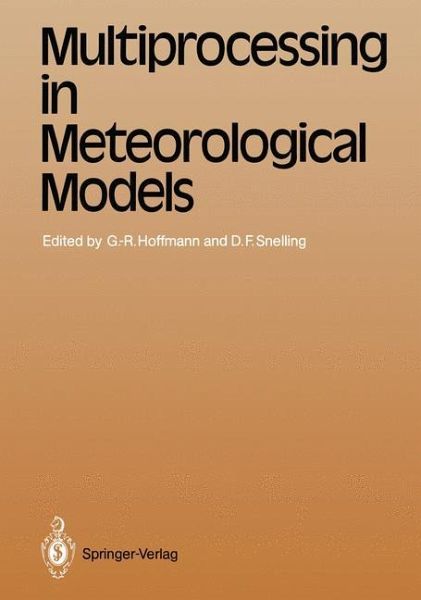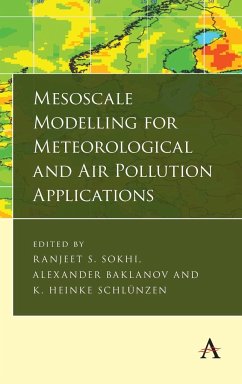
Multiprocessing in Meteorological Models
Versandkostenfrei!
Versandfertig in 1-2 Wochen
77,99 €
inkl. MwSt.

PAYBACK Punkte
39 °P sammeln!
Numerical weather prediction on the one hand needs a very large number of floating point calculations, but on the other hand is very time-critical. Therefore, the largest computers available, i.e., the "supercomputers", have usually been acquired by the national meteorological services long before they were used in other fields of research or business. Since the available technology limits the speed of any single computer, parallel computations have become necessary to achieve further improvements in the number of results produced per time unit. This book collects the papers presented at two w...
Numerical weather prediction on the one hand needs a very large number of floating point calculations, but on the other hand is very time-critical. Therefore, the largest computers available, i.e., the "supercomputers", have usually been acquired by the national meteorological services long before they were used in other fields of research or business. Since the available technology limits the speed of any single computer, parallel computations have become necessary to achieve further improvements in the number of results produced per time unit. This book collects the papers presented at two workshops held at ECMWF on the topic of parallel processing in meteorological models. It provides an insight into the state-of-the-art in using parallel processors operationally and allows extrapolation to other time-critical applications. It also shows trends in migrating to massive parallel systems in the near future.














